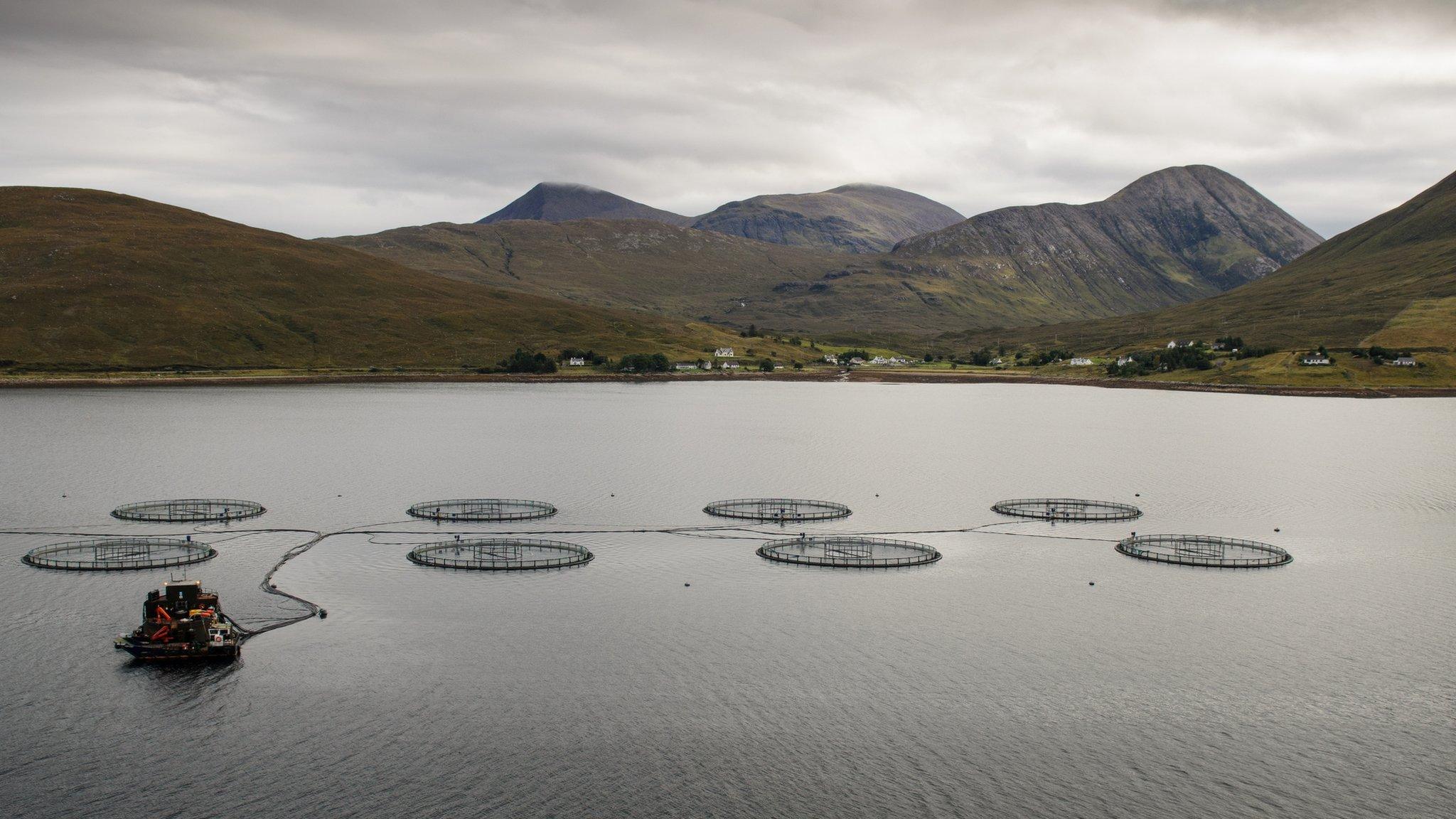One in five Scottish fish farms 'not meeting standards'
- Published
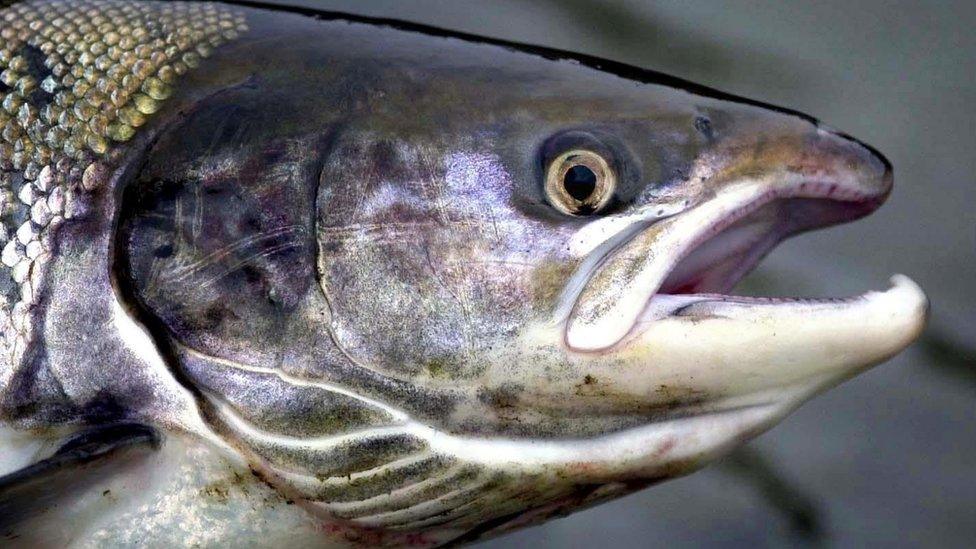
One in five salmon farms failed to meet environmental standards
Almost one in five salmon farms in Scotland failed to meet statutory environmental standards, according to the Scottish Environment Protection Agency (Sepa).
The regulator has published its annual assessment of whether environmental licence conditions have been met.
It said 56 of the country's 297 licensed fish farms were rated "poor", "very poor" or "at risk".
The figures come despite increased scrutiny on the sector.
Two parliamentary inquiries are currently looking at the impact of fish farming.
The Scottish Salmon Producers Organisation (SSPO) insists the issues haven't led to any environmental deterioration.
The total of fish farms which failed to meet the standards has risen slightly from 50 in 2016, but represents a much greater percentage of the total number of licences issued, which fell from 352 to 297.
Reasons for the worst ratings include excessive levels of ammonia being released into the sea and unregulated quantities of fish food and faeces discovered on the sea bed.
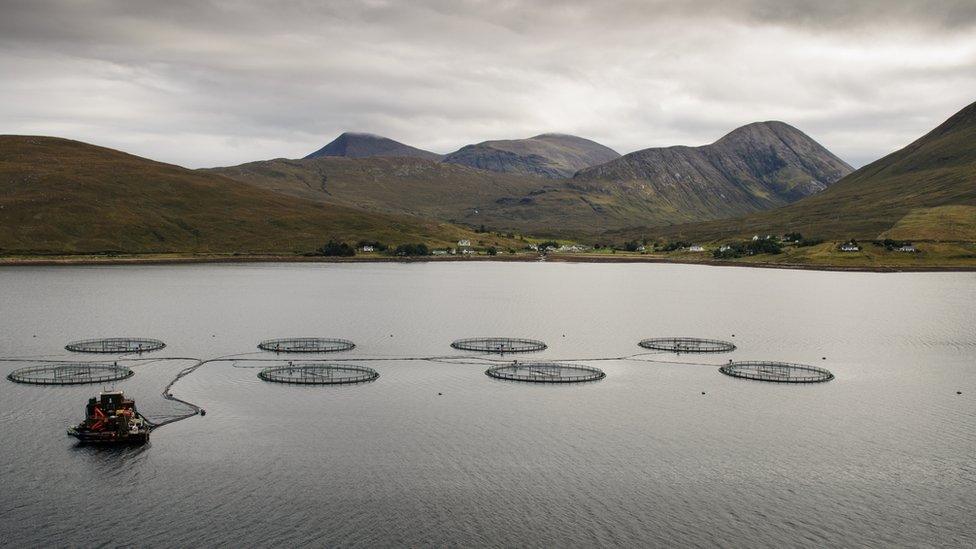
Excessive levels of ammonia in the sea and unregulated quantities of fish food contributed to poor results
Sepa chief executive Terry A'Hearn said: "We're clear that compliance is non-negotiable and will shortly announce a revised regime that will firmly strengthen the regulation of the sector.
"We'll consult with communities across Scotland on proposals including fresh modelling using the best available science, enhanced site based environmental monitoring, a new approach to better siting of farms, and a new approach for controlling the use of medicines aligned and encouraging innovation in the containment of marine waste.
'Develop consistency'
The figures come from Sepa's annual compliance report, which says 91% of regulated businesses - across all sectors - met the terms of their licences.
The Scotch whisky industry is singled out as one of the highest-achieving sectors, with 94% compliance.
The publication coincides with the launch of a sector plan for whisky industry which aims to develop consistency in licensing of sites.
Dagmar Droogsma from the Scotch Whisky Association said: "The Scotch whisky industry takes sustainability seriously. That is why we have put in place rigorous and ambitious targets in our sector-leading environmental strategy.
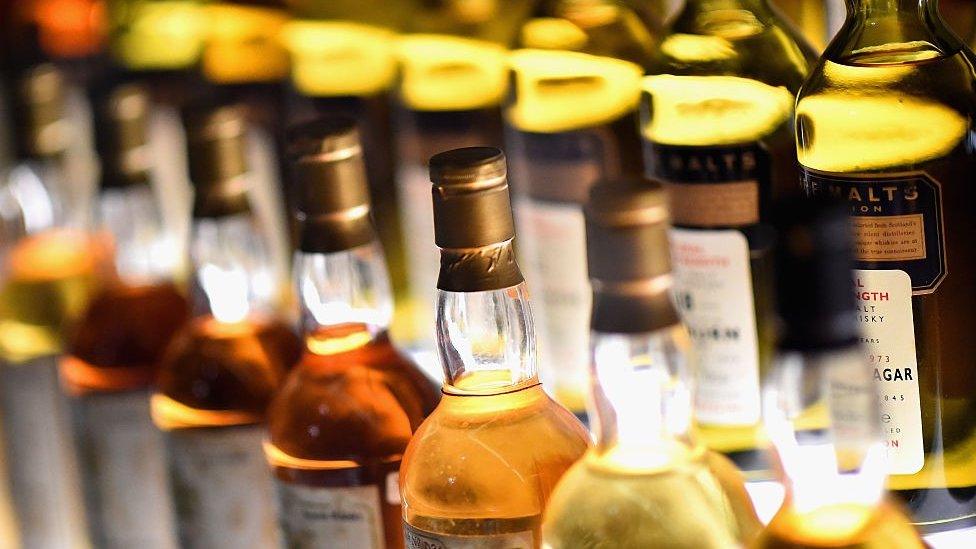
The Scotch whisky industry is one of the highest-achieving sectors
"The launch of Sepa's Scotch whisky sector plan is a welcome step toward deepening the co-operation between industry and regulators to ensure targets are met.
"The Scotch whisky industry has more work to do to ensure responsible water use, but we are determined to drive up standards and continue to be an environmental leader and an example for others to follow."
The salmon farming sector is experiencing unprecedented levels of scrutiny.
In March, a report by Holyrood's environment committee said the marine ecosystems faced "irrecoverable damage" if concerns were not addressed.
'Improved monitoring'
A further report from the rural economy committee is currently being finalised.
Sepa is preparing to announce a revised regulatory framework for the industry which includes improved monitoring and a fresh approach to the siting of farms.
Julie Hesketh-Laird, SSPO Chief Executive, said: "The Scottish salmon industry is committed to good environmental performance. In 2017 there was a slight drop in the industry's compliance rate though we understand from SEPA that the issues have not led to any environmental deterioration.
"The industry works closely with SEPA to ensure it meets required standards, and addresses issues promptly where there is room for improvement. Indeed this is central to the way compliance is assessed, with farms required to demonstrate action to remedy non-compliance. The industry is committed to raising standards higher.
"Individual SSPO member companies will work quickly with SEPA to address issues where they arise."
The figures for 2016 have been revised to show that 50 fish farms failed were non-compliant which equates to about one in seven.
- Published21 April 2018
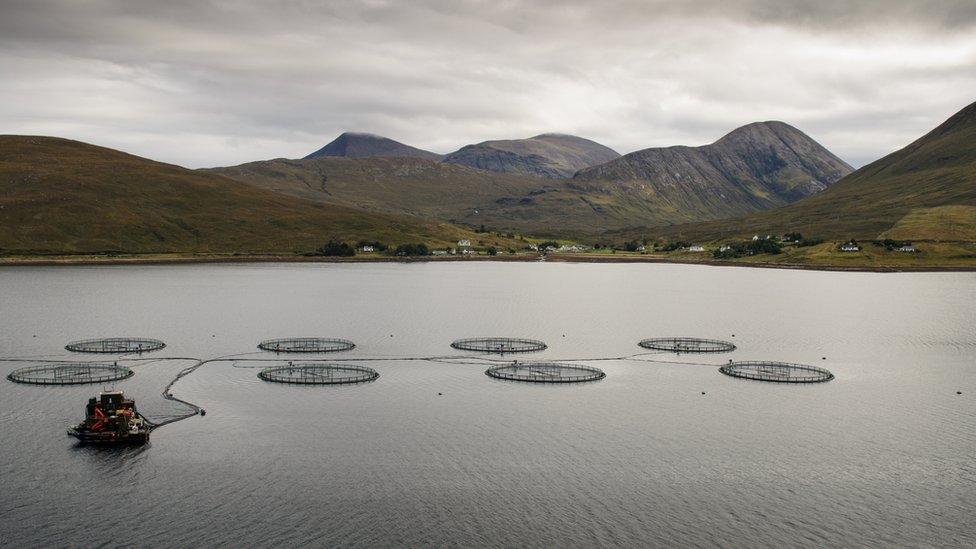
- Published5 March 2018
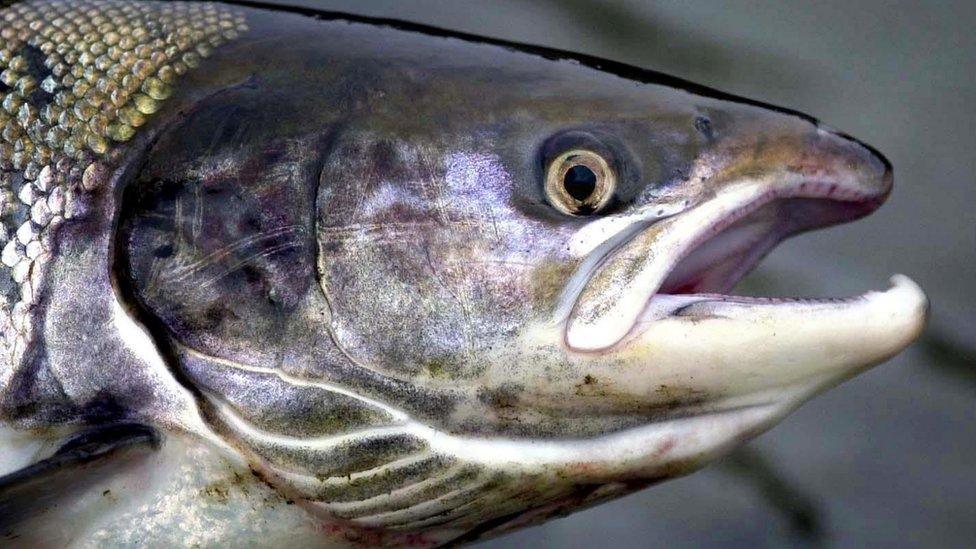
- Published19 May 2018
